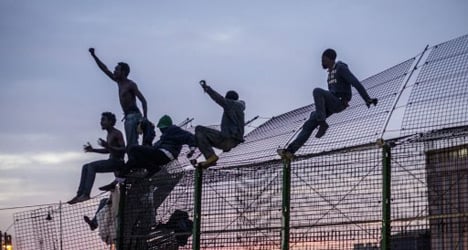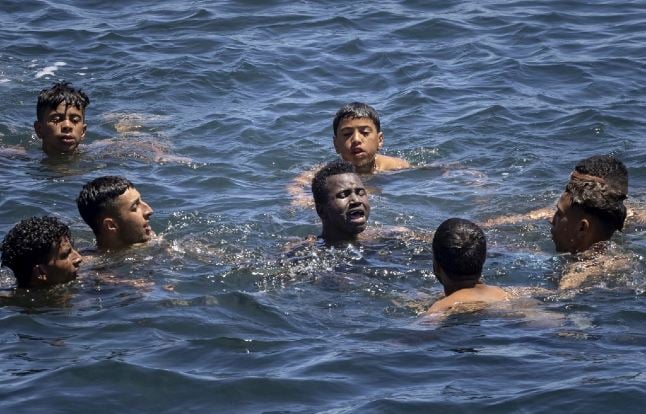Évole, who was in the area to film an episode of his TV show 'Salvados', posted a short video, recorded on his phone, of sub-Saharan immigrants attempting to scale the metal fence that separates Spain from Morocco.
The video was one of many dramatic images captured by reporters in the area who witnessed the crossing attempts as the sun rose on Friday morning.
Civil Guard sources reported that a number of groups tried to cross the 10-metre fences at 4.30am.
Over the following three hours they repeatedly attempted to enter Spanish territory while chanting "Spain! Liberty!" and "Victory! Victory!"
Between ten and twelve people are estimated to have successfully made it over the border.
Officials were alerted at 4.50am and a combined operation began between Spanish and Moroccan forces, including deployment of a helicopter and two units of the rapid intervention reserve security groups (GRS).
Police used ladders to bring the immigrants down from the fences and in one case a crane was needed to lower a man down from a streetlight.
5 immigrants were treated by the Red Cross for injuries according to press agency EFE.
Repeated assaults on Spain's border with Morocco by would-be immigrants have hit the headlines regularly in 2014.
Last week, Melilla President Juan José Imbroda was quoting as saying "We can't go on like this," by Spain's El Mundo newspaper.
The territories of Ceuta and Melilla sit across the Mediterranean from mainland Spain and are a key entry point for migrants seeking a better life in Europe.
On February 6th about 15 migrants drowned in Moroccan waters while trying to swim to Ceuta from a nearby beach.
Rights groups and witnesses accused Spanish security forces of firing rubber bullets at the migrants in the water.



 Please whitelist us to continue reading.
Please whitelist us to continue reading.
Member comments